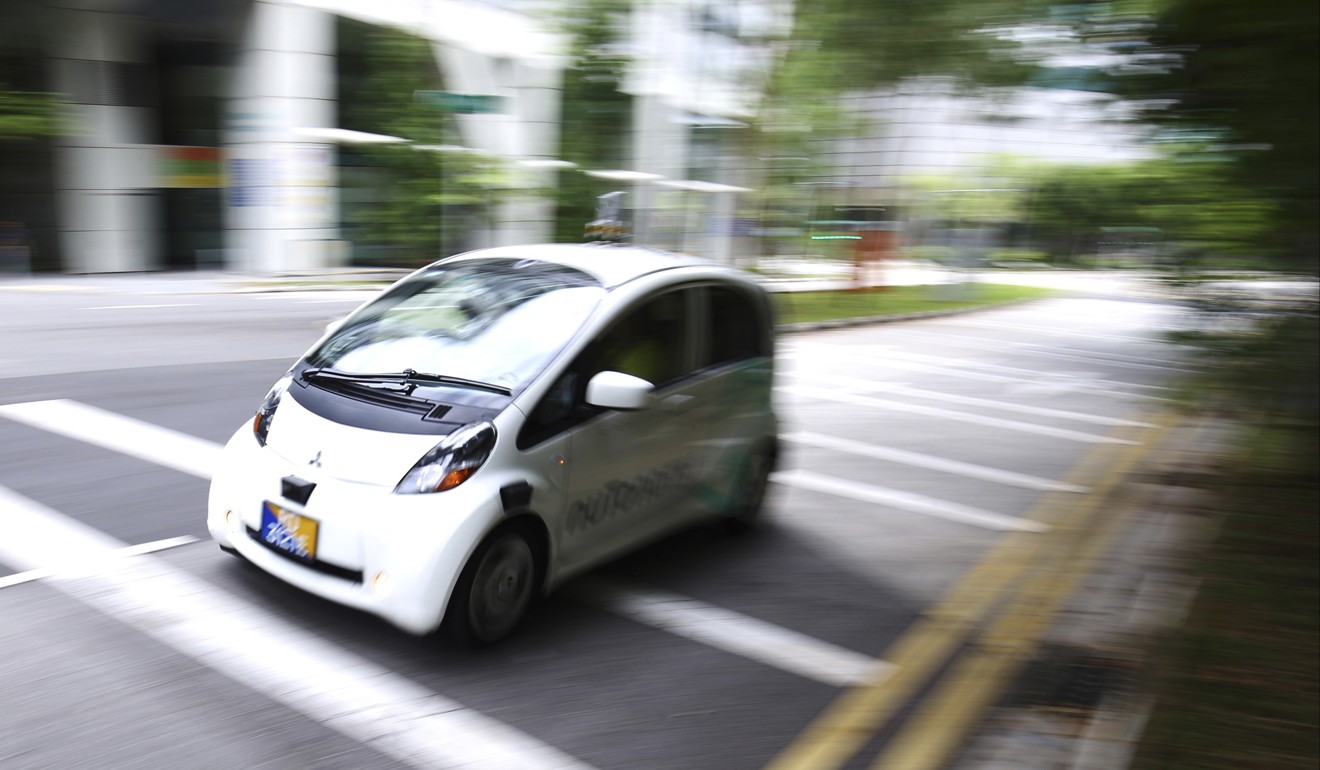
In 20 years, no one needs to own a car, says Grab CEO
The executive says investments in AI will help bring the world closer to a self-driving transport ecosystem
Twenty years down the road, nobody will need to own a car, but people will subscribe to plans that allow them to zip around town in driverless vehicles, according to ride-hailing company Grab’s top executive.
“How we look [at it] is a world where people would buy a subscription plan, like we do for telecommunication companies today. And then I can enter a [self-driving] car that enters a tunnel, which zooms me from Shenzhen to Hong Kong in three minutes,” said Anthony Tan, Grab’s co-founder and chief executive during a panel discussion at the Forbes Global CEO Conference on Wednesday.
Tan said the last leg of the journey will be completed with bicycles.
“We’ll see people moving from just thinking about owning a car to think about the benefits of mobility.”
Tan believes that investments in artificial intelligence (AI) will help usher the world closer to his vision of a self-driving transport ecosystem, thanks to routing algorithms, sensors and 3D topography that allow AI to optimise traffic and routes to help people save time.
“We need to build these base layers for self-driving vehicles to operate on,” he said.

He brushed off concerns that self-driving and AI technology would put Grab’s 1.3 million fleet of drivers out of work, arguing that there are opportunities for these individuals to become “more than drivers.”
“These drivers are going to move on from just driving, they could become a super steward, basically your mobile ATM or even sell you things in the car,” he said.
We’ll see people moving from just thinking about owning a car to think about the benefits of mobility
Alibaba Group’s executive vice-chairman, Joseph Tsai, who was also on the panel, echoed Tan’s sentiments that the nature of jobs will change with the advancement of AI.
“Automation caused massive loss of jobs ... this has been happening over the last few years. But the important thing is that we need to teach people to learn how to learn,” said Tsai.
“It’s the same as what we’re doing with machines. We’re not teaching machines knowledge, we’re teaching them how to learn and analyse things. Why can’t we [also teach humans] how to learn?”
Tsai added that he did not believe that machines will become “better or smarter than human beings” as a whole.
“Human beings are very good at finding other things, be it animals or machines, to do things that they can and can’t do,” he said.
“We [still] don’t know the limitations of the human mind.
“[Fears of] machines fighting human beings and destroying the human race, that’s fantasy. I don’t subscribe to that,” Tsai said.
Alibaba owns the South China Morning Post.

